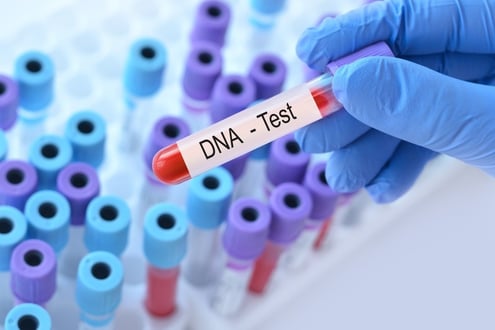Treatment for Pancreatic Cancer
How do doctors decide on a treatment plan?
Pancreatic cancer is hard to diagnose early, since the signs and symptoms are not obvious. Because of this, the majority of pancreatic cancers are found when the disease is already advanced. Doctors base treatment recommendations for pancreatic cancer on several factors, including:
- and grade
- type
- location of cancer
- overall health
- additional testing, including biomarkers and genetic testing for an
This section focuses on treatment for pancreatic exocrine cancer, the most common type. Teatment may include a combination of surgery, chemotherapy, radiation, immunotherapies or targeted therapies. Clinical trials may be available for any of cancer. You can learn more about each type of treatment below.
Every treatment has potential risks and side effects. Before any new treatment or surgery, make sure your healthcare team tells you what to expect.
Surgery
Surgery is used when results of tests suggest that it is possible to remove all the cancer. Only about 20% of patients with pancreatic cancer are able to have surgery because most pancreatic cancers are first diagnosed when the disease has already spread.
Types of surgery
- Whipple procedure (pancreaticoduodenectomy) is the most common operation to remove a cancer in the head of the pancreas.
- Distal pancreatectomy is a surgery that removes only the tail of the pancreas or the tail and a portion of the body of the pancreas.
- Total pancreatectomy surgery removes the entire pancreas, as well as the gallbladder, part of the stomach and small intestine, and the spleen.
- Palliative surgery may be used to relieve symptoms or to prevent certain complications like a blocked bile duct or intestine in instances where the cancer is too widespread to be removed completely. ERCP (Endoscopic Retrograde Cholangiopancreatography is a procedure where the surgeon inserts a tiny scope down the esophagus to the first part of the small intestine, known as the duodenum. The surgeon can use surgical instruments passed through the scope to relieve complications of pancreatic cancer like a blocked bile duct.
Chemotherapy
Chemotherapy uses drugs to help kill cancer cells. These drugs can be injected into a vein or taken orally. Most pancreatic cancers are treated with one or more of the following chemotherapy agents:
- Gemcitabine (Gemzar)
- 5-fluorouracil (5-FU)
- Oxaliplatin (Eloxatin)
- Albumin-bound paclitaxel (Abraxane)
- Capecitabine (Xeloda)
- Cisplatin
- Irinotecan (Camptosar)
- Liposomal irinotecan (Onyvide)
Radiation therapy
Radiation therapy uses high-energy particles or beams, such as X-rays to destroy cancer cells. You may receive radiation treatments before or after pancreatic cancer surgery, often in combination with chemotherapy such as capecitabine or gemcitabine. In specialized medical centers, radiation therapy may be delivered during surgery (intraoperative radiation).
Radiation treatments are usually performed Monday through Fridays with weekends off for either 2, 3 or 5 weeks depending on the underlying reason for treatment.
Targeted therapy
is a type of cancer treatment designed to attack or kill cancer cells, while sparing normal cells as much as possible. They are designed to target abnormal proteins, receptors or genes that are found in cancer cells or the surrounding tissue. Often times additional testing on the cancer is used to decide if is the best treatment for a person with pancreatic cancer.
PARP inhibitors
PARP inhibitors work by blocking a protein used by cells to repair damaged . They were initially developed to treat cancers in people with an inherited or mutation.
For people with a or mutation, the Lynparza () has been approved as in patients with advanced pancreatic cancer whose cancer did not get worse after at least four months of chemotherapy. Because mutations act similarly to and , the American College of Medical Genetics has guidelines that indicate people with mutations may benefit from this drug, too.
Research is ongoing to learn if PARP inhibitors are also affective for treating pancreatic cancer in other situations, including:
- people with an in a different gene that repairs damage.
- people who do not have an inherited gene mutation, but their tumor tested positive for an acquired mutation in a gene that repairs damage.
- in combination with or other agents.
Other targeted therapies
Other targeted therapies used to treat pancreatic exocrine cancer include:
- Bizengri (zenocutuzumab) is a type of approved for treatment of advanced, unresectable, or pancreatic cancer with a known as an NRG1 gene fusion which got worse or came back on, or after prior treatment.
- Enhertu (trastuzumab deruxtecan) is a type of targeted therapy approved for treatment of advanced cancers that have a called .
- Retevmo (selpercatinib) is approved for treatment of of advanced cancers that have a called a RET gene fusion.
- Rozlytrek (entrectinib) is approved for treatment of of advanced cancers that have a called an NTRK fusion.
- Vitrakvi (larotrectinib) is approved for treatment of of advanced cancers that have a genetic change called an NTRK fusion.
Targeted therapies used to treat pancreatic neuroendocrine tumors include:
- Afinitor (everolimus) is a type of known as an mTOR inhibitor that is approved for treating people with advanced pancreatic neuroendocrine tumors.
- Sutent (sunitinib malate) is a that is approved to treat patients with pancreatic neuroendocrine tumors that cannot be removed by surgery or that have metastasized.
Immunotherapy
Immunotherapies are cancer treatments that help the body’s immune system detect and attack cancer cells. There are several different categories of immunotherapies.
Immune checkpoint inhibitors
Immune checkpoint inhibitors are a type of used to treat several types of cancer, including some pancreatic cancers. Cancer cells can switch off the immune system. Immune checkpoint inhibitors are drugs that prevent this from happening. This allows the immune system to find, unmask and destroy cancer cells.
- Jemperli (dostarlimab) is an that is approved to treat cancers that have progressed after prior treatment, and for which there are no other available treatment options. The approval is for cancers that have a known as . This is often seen in cancers that develop in people with .
- Keytruda (pembrolizumab) is known as an immune checkpoint inhibitor. Keytruda is approved for treatment of patients with cancer with a known as microsatellite instability-high (MSI-H) or mismatch repair deficient (). Although this is not common in pancreatic cancer, it is often seen in people with a gene mutation who develop cancer.
Cancer vaccines
Cancer vaccines help the body's immune system recognize and attack cancer cells. Currently, there are no vaccines with approval to treat pancreatic cancer, but several are being studied in clinical trials.
Get notified when updated information becomes available.
SIGN UP FOR CONTENT UPDATESGI Cancer Genetics: Experts Discuss Risk, Screening, Prevention and Treatment
A small number of people treated with the chemotherapy drugs 5-FU (5-fluorouracil) or...
Topic : What patients need to know about liquid biopsies in cancer care
Liquid biopsies are tests that look for signs of cancer in blood or...
A vaccine for treating pancreatic and colon cancers with a biomarker known as...
Table of targeted therapies and immunotherapies for pancreatic cancer
|
Name of Drug |
Cancer |
Line of Treatment |
Indication |
|
Type of Agent |
|
Bizengri (zenocutuzumab) |
Advanced, or unresectable pancreatic cancer |
Second-line or later |
For treatment of advanced, unresectable, or pancreatic cancer which got worse or came back on, or after prior treatment |
NRG1 gene fusion |
Antibody that targets and HER3 protein receptors on cancer cells |
|
Enhertu (fam-trastuzumab-deruxtecan-nxki) |
or unresectable |
Second-line or later |
For adults with unresectable or , solid tumors who have received prior systemic treatment and have no alternative treatment options |
overexpression () |
Antibody-drug conjugate (chemotherapy attached to antibody targeting receptor) |
|
Lynparza () |
pancreatic cancer |
maintenance therapy |
For people whose disease has not progressed on at least 16 weeks of platinum-based chemotherapy |
in or |
Type of known as a |
|
Retevmo (Selpercatinib) |
solid tumors |
Second-line or later |
For treatment in solid tumors for which there are no other treatment options |
RET gene fusion |
known as a kinase inhibitor |
|
Vitrakvi (larotrectinib) |
solid tumors |
Second-line or later |
For treatment in solid tumors for which there are no other treatment options |
NTRK fusion |
known as a kinase inhibitor |
|
Afinitor (everolimus) |
Pancreatic neuro-endocrine tumors (PNET) that have gotten worse |
After progression |
Treatment of pancreatic neuroendocrine tumors that have grown or gotten worse |
No required |
Type of known as an MTOR inhibitor |
|
Sutent (sunitinib malate) |
Unresectable, locally advanced or pancreatic neuro-endocrine tumors (PNET) |
After progression |
For treatment of well-differentiated pancreatic neuroendocrine tumors (pNET) |
No required |
Type of known as a multi-target kinase inhibitor |
|
Jemperli (dostarlimab) |
or unresectable cancers |
Second-line or later |
For treatment of that have progressed after treatment and for which there are no other treatment options |
dMMR/MMR-D (mismatch repair deficient) |
Type of known as an immune checkpoint inhibitor |
|
Keytruda (pembrolizumab) |
or unresectable cancers |
Second-line or later |
For treatment of that have progressed after treatment and for which there are no other treatment options |
|
Type of known as an immune checkpoint inhibitor |
|
Keytruda (pembrolizumab) |
or unresectable cancers |
Second-line or later |
For treatment of that have progressed after treatment and for which there are no other treatment options |
TMB-H (tumor mutational burden-high) |
Type of known as an immune checkpoint inhibitor |
Timing of treatment
- treatment is given before surgery to shrink the tumor and help the surgeon remove as much of the cancer as possible.
- is given after surgery to prevent the cancer from spreading or coming back.
- with a is given to some people after they complete chemotherapy treatment to keep the cancer from coming back or growing.
- If the cancer recurs, additional chemotherapy, or may be given, depending on response to initial treatment and tumor testing.
Treatment side effects
Your healthcare team should explain what you might expect from all treatments, including:
- all of the possible risks and side effects of each treatment.
- which side effects may be serious and how to tell.
- when and who you should call if you experience a side effect.
- what can be done to treat or alleviate each side effect.
Make sure you let your healthcare team know if you experience any side effects of your treatment. For more information about possible treatment side effects, see our section on Cancer Treatment by Treatment Type.
Stages & Types
Treatment for pancreatic cancer depends on the stage and type based on pathology results. Learn about how doctors determine the stage and type of pancreatic cancers.
Biomarker Testing
Tumor biomarker testing and genetic testing can provide additional clues about which treatments may work best for your cancer.
Genetic Testing for Inherited Mutations
There are national guidelines that outline who should consider genetic counseling and testing for an inherited gene mutation linked to cancer.
Participate in Pancreatic Cancer Treatment Research
Below are some of our featured research studies looking at new treatments for pancreatic cancer treatment. To search for more studies, visit our Search and Enroll Tool.
Using a Blood Test to Detect Early Cancer Recurrence After Treatment (ORACLE)
Clinicaltrials.gov identifier: NCT05059444
Clinicaltrials.gov identifier: NCT06015724
Study of a New Investigational Inhibitor to Treat People with Advanced Solid Tumors
Clinicaltrials.gov identifier: NCT05932862








